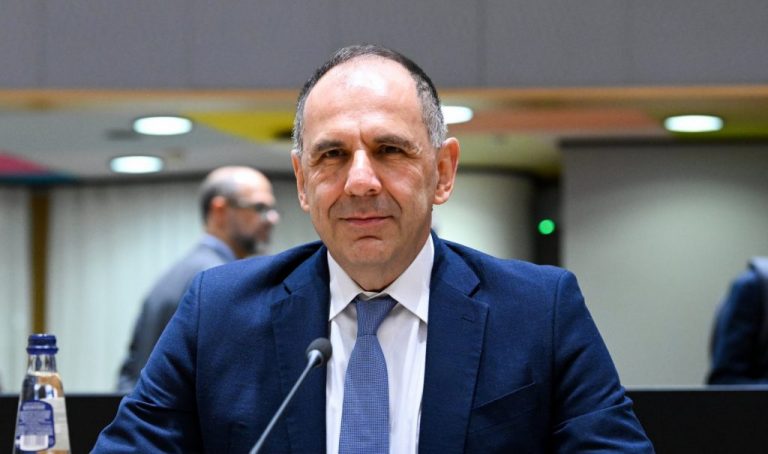Greek Foreign Affairs Minister George Gerapetritis expressed his increased concern over the situation in the Middle East, in an interview with Al Arabiya news channel published Saturday.
Gerapetritis mentioned two basic issues that need to be addressed, the further increase of humanitarian aid with sustainable corridors to Gaza and the second concern is the “the possibility of having a spill-over effect in the region.”
“The one comes from the northern part of Israel and the involvement of Hezbollah and the other from the Houthis in the Red Sea. So it is a significant concern that we need to contain the hostilities now in the broader region in order to find a sustainable and long lasting solution,” he stated adding that (US State) Secretary Antony Blinken completely shared this view.
In a question asked where does Greece stand regarding the war compared to other EU member states that focus on either a complete ceasefire or on the humanitarian aspect, he said that both points of humanitarian aid as well as a sustainable pause of the hostilities should be followed.
“We clearly support the resolutions of the UN Security Council about the two-state solution within the boundaries prior to 1967. I think this should be the starting point for any discussion for the post war era.” Despite disagreements within the EU, all agreed there is a need for humanitarian aid and an end to this war,” he noted.
Asked to about the current war in Gaza and the Palestinian-Israeli conflict in general, the Greek FM replied that “from the very beginning, Greece’s stance was categorically against the aggression, against any hostility, against any form of terrorism. We clearly distinguished between Hamas, the terrorist organization, and the Palestinian people, who we clearly respect and with whom we have strong historical ties. And on the other hand, what we said is that we need to minimize the consequences of the war against civilians and we have to establish sustainable humanitarian corridors.”
For Greece, he said, it is unacceptable that people are held hostages. “We demand just like the rest of the international community, the immediate release of hostages. We do consider that there is an International Law-based right of self-defense, but within the limits of International Law and International Humanitarian Law.”
In the prospect of Greece acting as a mediator to put an end to this conflict, the FM said that Greece can talk to all state actors and stakeholders.
“I will host the Palestinian Foreign Minister in Athens in the near future… We do talk to all parties. We are, I think, very credible interlocutors in this respect and we are offering good offices. Already I think we have provided our good mediation, when it comes to the European Union. We submitted an original plan that was altogether accepted by the European Union and especially by the Foreign Affairs Council concerning the situation in the Middle East. And now I think we are in a position to become facilitators in this respect,” he noted.
Regarding his future meeting with his Palestinian counterpart, Riyad al-Maliki in Athens, and the possible commitments following the meeting, Gerapetritis said, it is important to provide further legitimacy and leverage to the Palestinian Authority.
“We need to have credible interlocutors for the day after. It is absolutely essential that we talk to the Palestinians, the Palestinian people, who have suffered indeed a lot in the past, and there must be some significant prospect for their future and prosperity. What I think is important at this moment is to involve the Palestinian Authority in the discussions for the postwar era. And also to make sure that there is an effective administration the day after that would secure the future of the Palestinian people, but also will define the security in the broader region, and especially on the Palestinian Territories, without any involvement of terrorism in this respect.”
Concerning the transfer of Palestinians to other countries, Gerapetritis said that no forcible displacement of people is allowed nor a collective punishment.
“This is prohibited by International Law. So we are clearly in favor of the right of all people to self-determination and the right to stay in their homeland… we are against any idea of displacement in the region.”
In the likelihood of Greece receiving people from Gaza, the foreign minister stated that in cases of immediate medical treatment, Greece is ready to assist.



